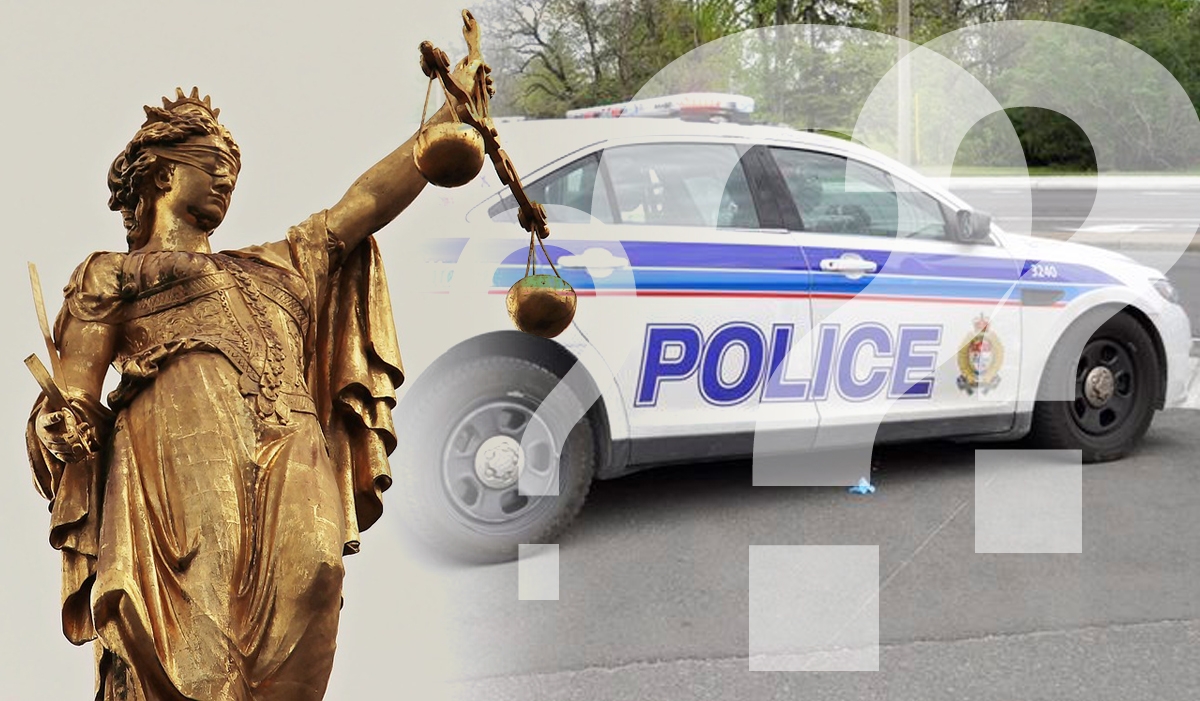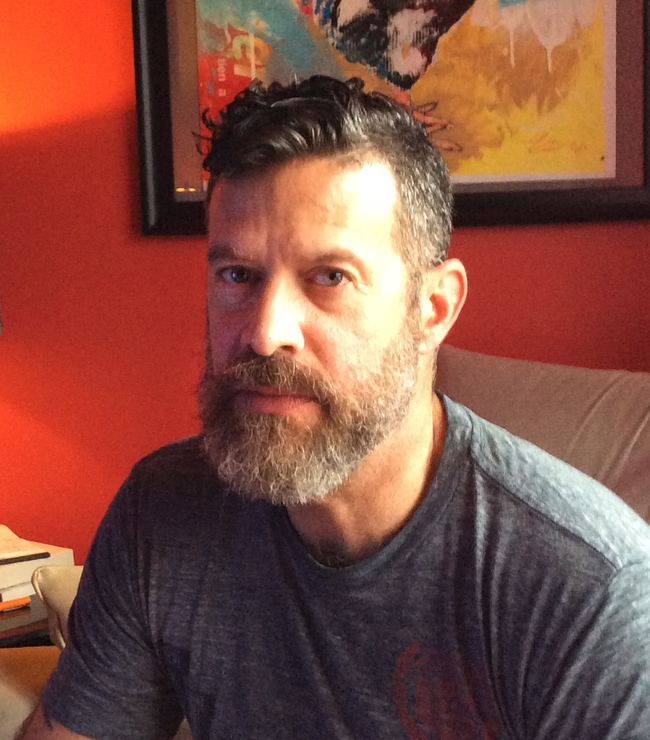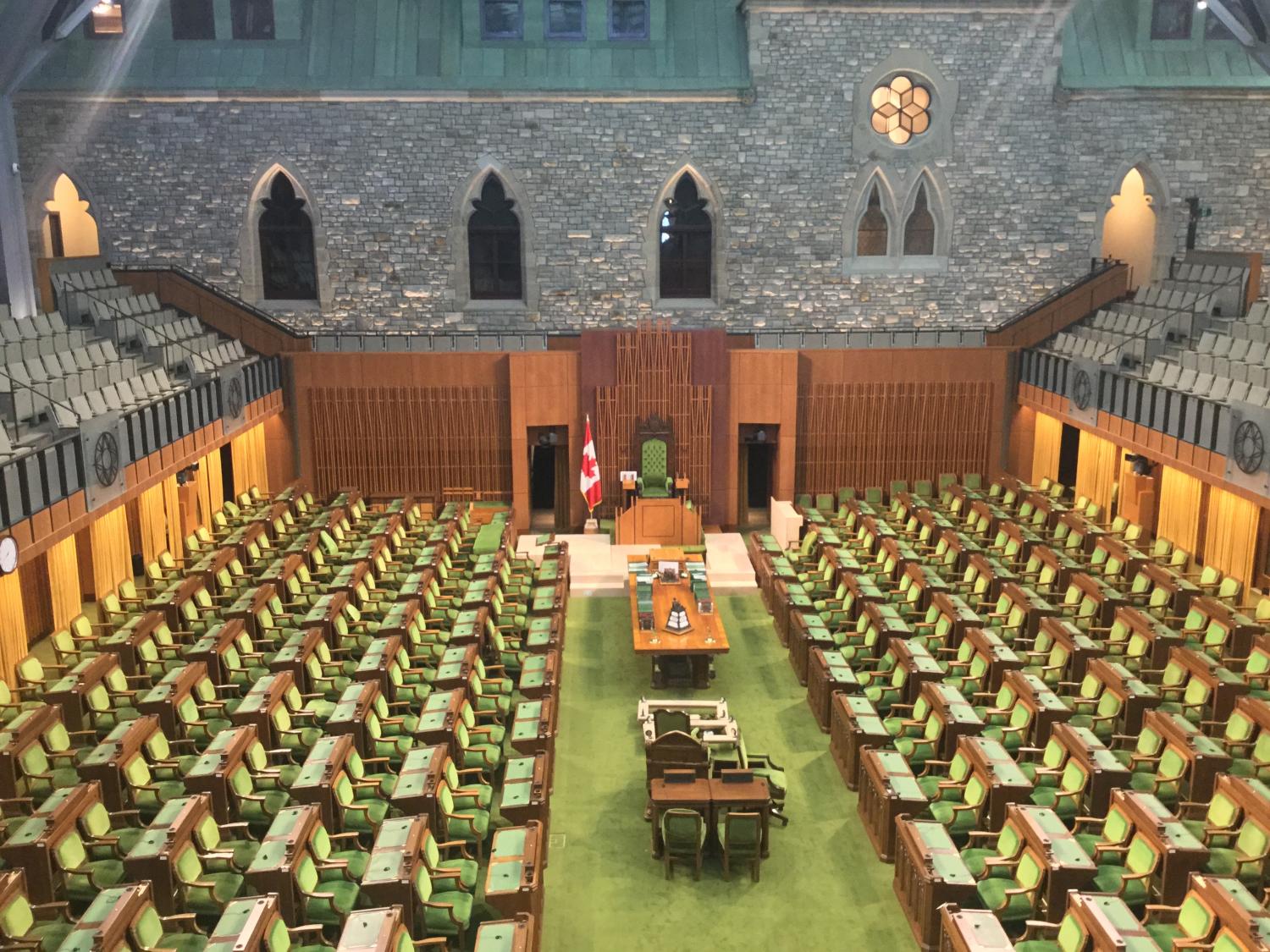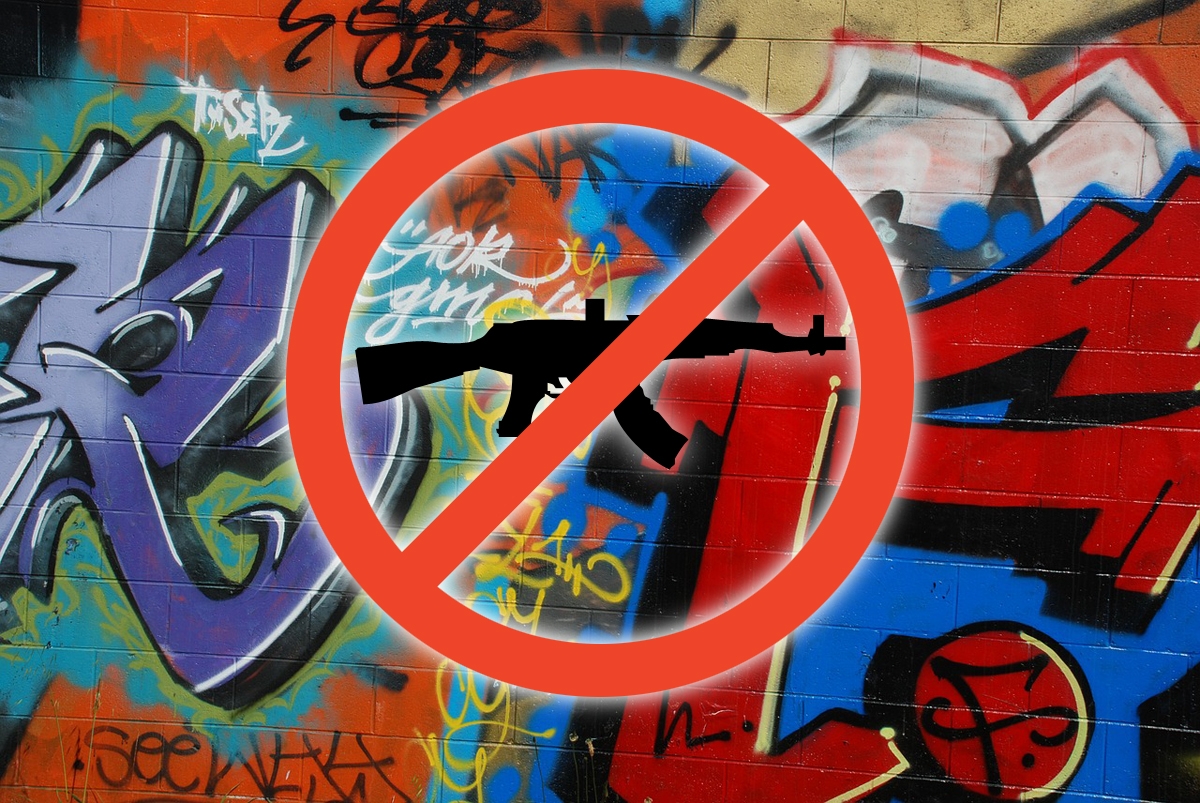
Ottawa man left destitute after faulty police investigation
If you Google ‘police misconduct in Ottawa’ it is clear that the Ottawa Police Service (OPS) has a problem. From the high-profile death of Somali-Canadian Abdirahman Abdi at the hands of two Ottawa Police Officers in July 2016, to Constable Jason Mallette who faced a dozen charges of misconduct in 2018, the news is full of instances of Ottawa police officers behaving badly.
Ottawa resident Rodney Mockler says he has witnessed first-hand some of the questionable practices that some Ottawa police officers employ while on duty. In fact, lack of police oversight and commitment to due process has cost him his livelihood.
It was a hot summer day in July 2016. Mockler was not working because, as a man in his 50s with extreme arthritis and many other health issues, he was waiting for his first hip replacement scheduled for October. He decided to venture out from his apartment where he lives with his husband and dog to One in Ten, a local shop in Ottawa’s gay village. “I wish I would have never thought to do that, that day,” he says.
When he opened the door to the stairwell that led to One in Ten, there was a woman and a man coming down the stairs from the bong shop next door. Mockler started up the stairs but stumbled, as he often does because of the arthritis in his hips. He regained his balance but then fell again, brushing the hand of the woman coming down the stairs. “She started screaming bloody murder,” he remembers. “Yelling ‘He hit me, he hit me, he hit me.’”
The situation escalated from there. Mockler says he tried to apologize but the woman wouldn’t stop screaming. Eventually he raised his own voice, asking her to back off, left the scene and went into One in Ten’s back room. “I leaned against the flat seat at the window for about two minutes,” Mockler says. “Then I heard screaming and yelling, and I thought I better go try and diffuse the situation again. I wanted to apologize for raising my voice and say it was a misunderstanding.”

When he got back to the scene the police had been called and after being asked if he was in an altercation, he was handcuffed immediately and taken to the police station. “I was not permitted to speak or give my statement of what happened,” Mockler says.
Mockler was arrested and charged with assault and uttering threats to cause bodily harm by investigating officer Constable Patrick S. Lafreniere.
The alleged victim, 22-year-old Ashley Ann McColl, told police that Mockler punched her in the breast, kicked her in the knee and then grabbed her by the neck and lifted her from the ground.
In a subsequent statement taken by Lafreniere over a year later the story changes significantly with McColl adding that Mockler threatened her, saying he hated women, kicked her down the stairs, jumped down the stairs himself, dragged her back up, and then continued kicking and hitting her.
She also adds more injuries to the mix like a scratched and bleeding neck and a purple bruise on her breast. Mockler says that because of the arthritis in his hips there is no way he could have assaulted McColl in any of these ways. “All this led to a story that was fake from beginning to end,” he says.
Police notes and some of the witnesses’ state that it seemed like Mockler was drunk on the day the altercation occurred. Lafreniere noted that he noticed a strong smell of alcohol on Mockler’s breath and that he had slurred speech and glossy eyes. Notes from another officer on the scene, Sergeant Claude Mallet, said that he was also unsteady on his feet and that his left eye was red.
Mockler says that although he had the equivalent of 3-4oz of vodka with orange juice at lunch he was far from being drunk. He attributes his unsteadiness to the pain in his hips and he says the glossiness in his eyes was because both lenses were removed due to radiation therapy for a tumour. The operation he underwent to remove the tumour also caused his left eye to by visibly red. No breathalyzer test was taken to confirm the suspicions of Lafreniere and the other police officers on scene.
Police notes indicate that McColl was asked to go to the station for them to take photos of her injuries, but she refused stating that she was late for work. Lafreniere provided her with an email address so she could email photos to him when she got home. None of the photos that were provided to Mockler in disclosures match the alleged injuries, although some of them were blacked out.
Mockler’s trial date was set for November 2, 2017 and he spent the next 17 months going back and forth from the Ottawa Court House to the Ottawa Police Station, trying to get as much information as he could about his case.
Mockler says both the Ottawa Police Service and the Crown were extremely unhelpful when it came to providing him with information. He was also not allowed to submit his statement, no matter how hard he tried.
Executive Officer Superintendent of the Ottawa Police Jamie Dunlop says that sometimes the statement from the accused is not taken because their lawyer advises them not to give one. Mockler says this is not the case in his situation. He says he walked to the Ottawa Police Station 47 times in the months leading up to his trial to try and give his statement and also left many messages for investigating officer Lafreniere.
An investigative report conducted by Professional Standards Investigator Stephen T. Jones states that Lafreniere denied ever having received any messages from Mockler.
Mockler was able to get his hands on several disclosures of evidence and witness statements before his trial. Unfortunately, the majority of the information came in only weeks before the trial date because the witness statements gathered at the scene were misplaced.
Over a year later Lafreniere made a last-minute effort to contact all the witnesses to get their statements on the events. Thomas Ramsay, the owner of One in Ten, who was working in his shop at the time of the incident says that Lafreniere came to him three times to get him to re-write his statement because it had been lost. “It was absolutely ridiculous,” he says.
This is not the first time Lafreniere has been involved in questionable police activity.
Back in 2014 he and Constable Kirk Baston faced a disciplinary hearing for tackling busker Denis Seguin to the ground before issuing a ticket for busking on Rideau Street. Seguin was injured above the eye and his wrists were hurt by tight cuffs. Lafreniere and Baston were charged with two counts of unlawful or unnecessary exercise of authority but were acquitted of using unnecessary force.
Both officers remained on patrol during the Police Services Act proceeding in the spring of 2014.
When it came time for Mockler’s trial Lafreniere did not show up in court and neither did any of the witnesses. Mockler was acquitted due to lack of evidence.
The professional standards investigation report cites the difficulties that Lafreniere had in gathering statements and the unwillingness of witnesses to participate in the court process as reasons why the Crown ultimately withdrew the charges against Mockler.
Dunlop says it is not uncommon for witnesses to be asked to re-write statements and that in certain situations they do not to show up at a court date. He said he was unable to be more specific about the case because of an investigation spearheaded by several complaints by Mockler to the Office of the Independent Police Review Director (OIPRD). “It is difficult to say in a hypothetical situation,” Dunlop says. “There are yeses and no’s all over the place.”
The crown dropped the charges against Mockler in November 2017; however, the incident continues to haunt him to the present day. An IT contractor for the government, Mockler has been unable to find steady work since the summer of 2016. He says he had a job at Defense Construction Canada (DCC) in 2017 but was terminated without a proper explanation after six weeks. “I had never not had a job in eight years,” he says.
When he did some digging, Mockler found out that there was a mark on his record and the security clearance he needed to get a job with the government was in question.
In May 2018, Mockler went to an interview with the Security Screening Investigation Unit of Public Services and Procurement Canada where they outlined that his clearance was being reviewed because he failed to tell them of his arrest in 2016. This is a requirement that Mockler knew about, but says it slipped his mind because of his health issues and impending trial. Security Screening Investigator Amanda Black told Mockler in an email that they were also concerned about alcohol-related issues based on the altercation as well as his dismissal from DCC. “It was a catalyst,” Mockler says. “My career is over.”
Mockler says that even though the charges were dropped from the incident with McColl, he believes they are still sitting on his record. He says he was told by several people that it is up to police whether or not a charge is erased. “I was told by everyone that it is at the police’s discretion,” he said. “If the police don’t like you, they won’t take it off.”
On April 16, 2019 the OIPRD submitted a letter to the OPS stating that they had found several deficiencies in the OPS’ review of Mockler’s complaints that Lafreniere had not acted appropriately in the investigation of his case.
The letter found former OPS Chief Charles Bordeleau’s investigation “not reasonable” and asked that he complete another review of the matter, interviewing Lafreniere directly (instead of relying solely on his notes) as well as Sergeant Mallet and Constable Ross Griffiths who also played a role in investigating the charges against Mockler.
The OPS conducted the review as mandated by the OIPRD but still came up with nothing, except Lafreniere admitted to having received one message from Mockler but didn’t return it because his superiors had already spoken to him. “Upon analysis of all the new information, the investigator has concluded that there is insufficient evidence to establish reasonable grounds to believe misconduct occurred on the part of the respondent officer,” wrote investigator Sergeant Mireille Clement in the report.
On December 3, 2019 Mockler received a second report from the OIPRD who had conducted another investigation into whether the OPS professional standards investigations were reasonable and whether Acting Police Chief Steve Bell’s decision that the allegations of misconduct against Constable Lafreniere were unsubstantiated was valid.
The OIPRD review concluded that the professional standards review conducted by the OPS was reasonable. While it did find that Lafreniere provided some conflicting evidence when it came to his ignoring Mockler’s repeated attempts to contact him, the OIPRD concluded that his actions surrounding Mockler’s case were reasonable and did not constitute misconduct. “When I received that I was unbelievably angry,” Mockler says.
Because Mockler has not been able to work for several years he is facing serious financial hardship. He and his husband are at risk of losing their apartment because they are unable to make rent. He is currently receiving a disability benefit from the Canada Pension Plan, but he has been refused funding from the Ontario Disability Support Program (ODSP) because his husband still brings in some income to the household.
Mockler has no idea where to turn next. Even if he doesn’t get work, he wants the police to know they were wrong and for McColl be held accountable for ruining his life. “I’m blown away by this because I don’t understand it,” he says. “They’ve won and I’m left in the dirt.”







